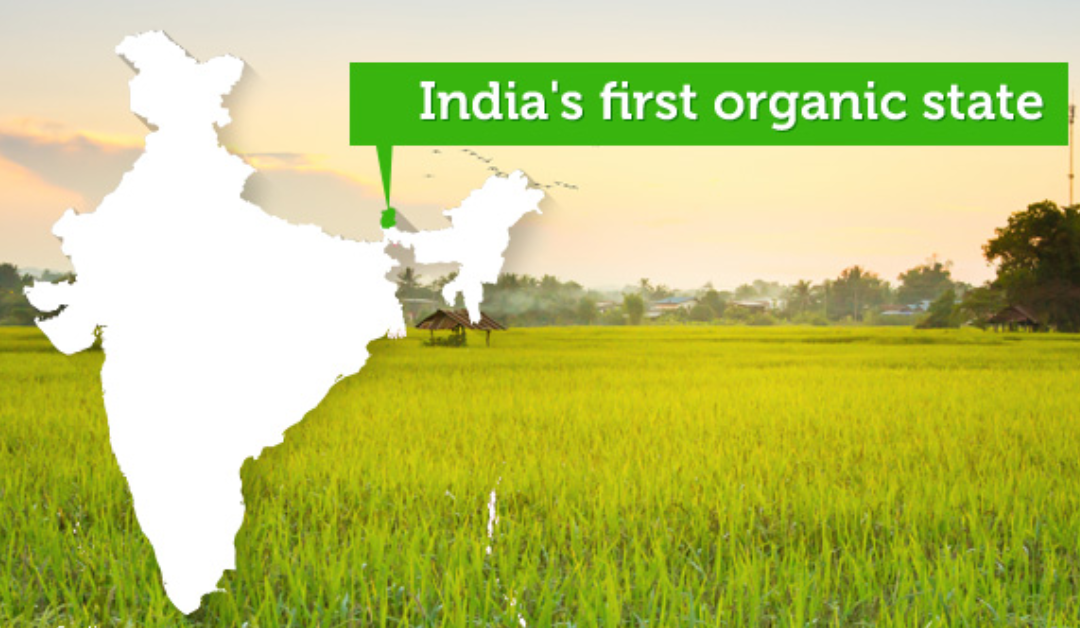Sikkim: Leading the Way as India’s First Fully Organic State

A Himalayan State with a Vision
Nestled in the lap of the eastern Himalayas, Sikkim has carved a unique identity for itself—not just for its scenic beauty, but for becoming the first state in the world to adopt 100% organic farming. This bold move has not only redefined agriculture within the state but has also turned it into a global model for sustainable development.
The Green Shift: From Conventional to Organic
The journey began in 2003 when the state government took a visionary step towards organic farming. Over the years, it systematically phased out chemical fertilizers and pesticides, and provided training and support to farmers to embrace organic methods. By 2016, Sikkim had successfully converted all of its 75,000 hectares of farmland to certified organic farmland.
This wasn’t a simple switch. It required a complete ecosystem transformation—revamping policies, educating thousands of farmers, setting up certification systems, and aligning markets to accept and promote organic produce.
A Boost for the Environment and Farmers
The benefits of going organic have been substantial:
- Improved Soil Health: Without the burden of synthetic chemicals, the soil has regained its natural fertility and microbial richness.
- Water Conservation: Reduced pollution of water bodies has helped preserve aquatic life and ensure cleaner water for communities.
- Farmer Empowerment: Organic farming has opened premium markets to Sikkim’s produce, helping increase income for farmers.
- Tourism Surge: The state has witnessed a spike in eco-tourism, with travelers drawn to its clean environment and organic lifestyle.
International Recognition
Sikkim’s achievement didn’t go unnoticed. The state was honored with global accolades for its commitment to organic farming and for influencing agricultural policy worldwide. Its success story is now studied and celebrated as an example of what determined governance and community participation can achieve.
A Model for the World
Sikkim’s transformation proves that an entirely organic agricultural system is not only feasible but also profitable and sustainable. It sets a bold example for other states and countries grappling with environmental degradation and the harmful effects of chemical-intensive farming.
By embracing organic farming, Sikkim has not just preserved its natural heritage but has paved the way for a healthier, greener, and more sustainable future.






No Responses